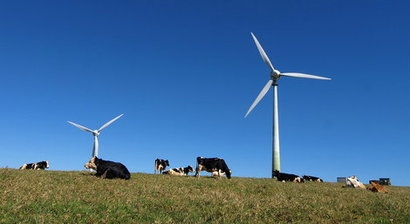
“Any policy to reduce greenhouse gas emissions which ignores the need to transition our emissions-intensive energy sector – the largest source of emissions in the Australian economy – to clean energy, is not taking the matter seriously” said Clean Energy Council Chief Executive Kane Thornton. “It also misses a golden opportunity to incentivise further private investment, further lower energy prices and create jobs. This new fund will not apply to the energy generation sector. This means that the momentum created by $20 billion of private investment in large-scale renewable energy being built behind the Renewable Energy Target is now at risk”.
Thornton added that all the incredible expertise and capacity the industry has built could be lost without policy certainty beyond 2020. As the Clean Energy Council outlined recently in a series of policy recommendations for the upcoming Federal Election, Australia is in desperate need of a long-term energy policy that includes a target for reducing emissions across the electricity sector.
“Along with many other organisations such as the Business Council of Australia and the Australian Industry Group, the Clean Energy Council backed the government’s efforts to deliver cheap, clean and reliable energy through its National Energy Guarantee” Thornton said. “While climate and energy policy remain a difficult political issue, the lack of any genuine policy is unsustainable for the energy sector”.
Mr Thornton said the funding for a second Bass Strait interconnector to provide a stronger link between the mainland and Tasmania’s hydro generation, pumped hydro storage and other renewable resources will help to unlock Tasmania’s enormous renewables potential and is very welcome.
For additional information:

